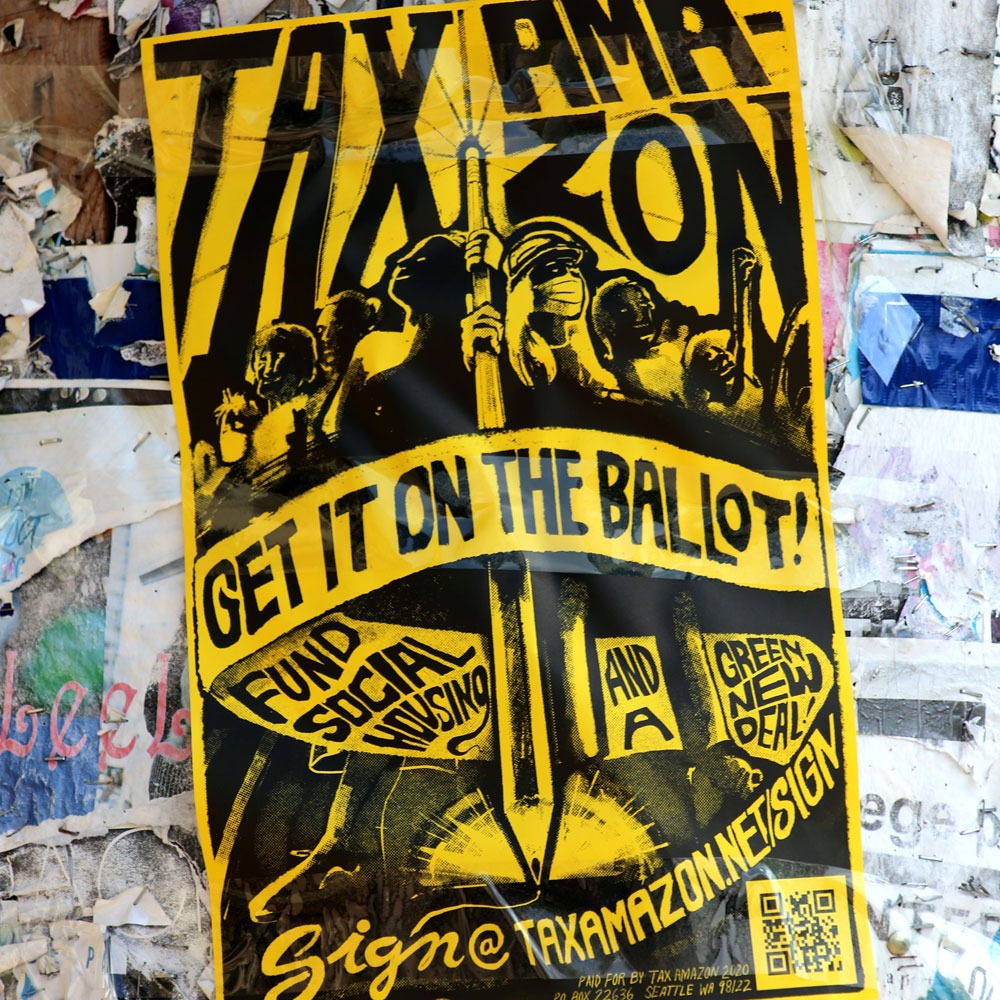
August 11, 2020; Associated Press and CNBC
A mayor pitted against the city council. The city’s first Black woman police chief pressured to resign. The first socialist councilmember up in arms for the failure to defund the police. These are just some of the details of what is going on in Seattle, a progressive city striving to survive the pandemic but also witness to the difficulties of moving racial and economic justice forward.
Seattle made national news after its City Council voted Monday to pass an urgent mid-year budget that, among other things, cut less than $4 million, or one percent, from a $400 million police budget. It did so by defunding the Navigation Team (a controversial team of police officers and outreach workers created to dismantle homeless camps in the city), lowering bloated salaries of top police leaders (many of whom make six times as much as Washington’s state legislators), and laying off 100 officers from its 1,400-person police force.
In a dramatic statement weeks earlier, Seattle Police Department Chief Carmen Best had warned that police budget cuts were necessary for a city facing a cash-deficit during the pandemic:
The last few months have been unprecedented for our city, our country, and our world. Businesses have closed, unemployment remains high, and those working are still often telecommuting. It’s a world none of us could have ever seen. This has had a dramatic effect on the city’s budget; the mayor and City Council have each discussed different pathways to fill the budget gap the city faces. To be honest with you, no matter which way things go, there’ll be further cuts not only to SPD, but citywide. Our Seattle police department budget team department is working to save jobs and ensure the community remains safe. We want to avoid furloughs and layoffs but at this point, I have to be honest, there are possibilities for SPD and other departments to see those cuts. The murders of George Floyd and Breonna Taylor and other tragedies have given a new energy to ongoing conversations around public safety and demands for change.
Those cuts, however, cost her job. So did the 165,000 signatures Seattle’s police union collected for a petition and campaign against defunding the police. As we’ve previously reported for NPQ, police unions and police foundations around the country are a powerful economic force that have stubbornly resisted any calls for change. The Seattle Police Officers Guild is no different, and there were even calls in June to expel it from the King County Labor Council for its unwillingness to speak out against structural racism.
However, the minuscule cuts to Seattle’s police funds are just part of the story. For years, a coalition of Seattle advocates for workers’ rights and economic and social justice has been pushing officials to build the City We Need through fundamental change that transforms society from a profit-driven culture to a community-led set of alternatives that focus on affordable housing, healthcare for all, racial and gender justice, police accountability, living wages, fighting the criminalization of immigrant and homeless people, and taxing big business.
Sign up for our free newsletters
Subscribe to NPQ's newsletters to have our top stories delivered directly to your inbox.
By signing up, you agree to our privacy policy and terms of use, and to receive messages from NPQ and our partners.
The $86 million COVID Relief Plan that just passed in Seattle, which includes the $4 million meager cut to the police force and further budget cuts elsewhere, sets up for “new progressive revenue,” comprising “a detailed spending plan that prioritizes food security for low-income families, Green New Deal policies, small business support, and new resources for our homeless neighbors and immigrant and refugee community.”
The plan also adopts a payroll tax on Seattle’s largest businesses to raise $214 million in revenue per year, which will go into effect in 2021. Under the “JumpStart Seattle” tax, business with at least $7 million in annual payroll will be taxed no more than 2.4 percent on individual salaries over $150,000.
“We are ready to truly ‘jump-start’ Seattle’s economy by ensuring our most vulnerable residents are not left behind during this pandemic, and we build a more resilient economy as we recover,” explains councilmember Teresa Mosqueda in a statement.
This is the kind of tax reform that Amazon, as NPQ has previously reported, has been fighting against for years.
“Seattle residents have made it clear—now is not the time for government austerity or divisiveness. Investing in communities of color, small businesses, and community health leads to a more robust and resilient economy. We are in the midst of a health and economic crisis that even a strong economy like Seattle may not be able to recover from quickly,” Mosqueda says.
Which brings us back to former Seattle Chief Best’s plea that sacrifices were expected during the pandemic and economic recession from all who could afford them. It leaves us truly aghast at the cultural paralysis of a police structure that has grown way past its original purpose of being part of the community it professes to protect.
Councilmember Kshama Sawant, of the Socialist Alternative party, called for bolder changes, “With my ‘no’ vote today, I affirm our movement’s unchanging demands: Defund SPD by at least 50 percent and tax big business and the rich, not working people, because we can’t pay and we won’t pay for this crisis – this crisis of the racist and bankrupt system of capitalism.”—Sofia Jarrin-Thomas













